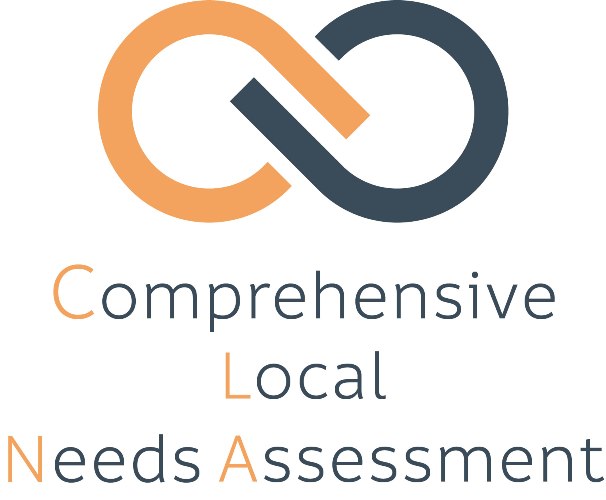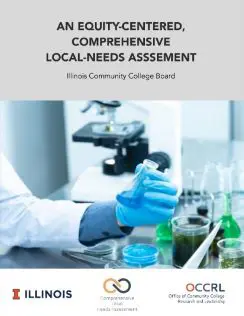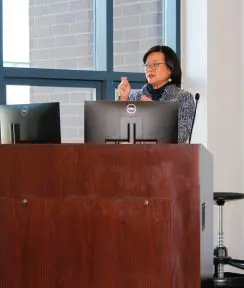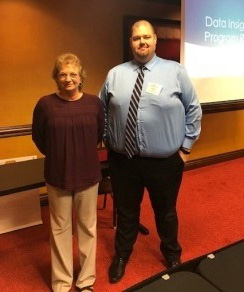
Comprehensive Local Needs Assessment
Summary
The Perkins V comprehensive local-needs assessment (CLNA) moves beyond checklist types of assessment processes and instead aims to facilitate a data-informed, continuous improvement process for community colleges to biannually assess the extent to which their career and technical education (CTE) programs and programs of study are aligned with local workforce and economic needs. Using an equity lens, the CLNA requires disaggregation of data to highlight, analyze, and work toward closing equity gaps for underserved populations. The CLNA process also crosswalks Perkins V and the Workforce Innovation and Opportunity Act (WIOA) requirements for standards and examination of equity and access for specific student subpopulations (Perkins V). Community colleges are required under Perkins V to engage a diverse body of stakeholders in the CLNA process. The summation of findings from the Comprehensive Local Needs Assessment process are to inform school districts’ and community colleges’ development of their Perkins V local application for funding.
Purpose
To achieve equity high schools and community colleges must be reflective, introspective, and willing to acknowledge how institutional norms, structures, and practices may create barriers for historically underrepresented and marginalized student populations. Once problems are identified, high school and community college leaders must take system-oriented action to dismantle these barriers to student access and opportunity while providing varying educational resources and opportunities to rectify any inequities. Thus, the CLNA process offers you and your stakeholders an opportunity to examine the success of your CTE programs through an equity lens.
The equity-centered comprehensive local needs assessment developed by OCCRL consist of the following six sections of guiding questions that require the analysis of data, not just the reporting of data:
- Progress toward implementing CTE programs of study
- Student performance data
- Recruitment, retention, and training of CTE faculty and staff
- Labor market alignment
- Size, scope, and quality as defined by the Illinois state plan for Perkins V
- Progress toward improving access and equity
Resources
Through our experiences providing professional development and coaching for high schools and community colleges engaged in Pathways to Results (PTR), program review, and our other ongoing public engagement activities, OCCRL has developed a number of open-access tools in the form of research briefs, reports, peer-reviewed research articles, blogs, videos, webinars, and podcasts specific to equity and racial equity that are useful to institutions engaging in the CLNA process. Hence, we developed a comprehensive resource webpage that links both high schools and community colleges to OCCRL and other related equity and racial equity-centered resources that coincide with each required component of the CLNA.
View further CLNA resources below and on the Equity and Racial Equity Resources page.
Webinars
Systemic Equity, Racial Equity, and the CLNA
This is the first of two webinars being done on the Comprehensive Local Needs Assessment. The session focuses on racial equity and how it applies to CLNA.
Using the CLNA Process to Identify Racial, Equity, and Opportunity Gaps
This webinar covers how to use the Comprehensive Local Needs Assessment process to identify racial, equity, and opportunity gaps.
OCCRL CLNA Coffee Break - Leveraging Resources
This webinar covers how to leverage resources toward completion of the Comprehensive Local Needs Assessment.
This webinar focuses on promising practices specific to engaging partners and expanding secondary partnerships, which is essential to providing necessary data needed in the CLNA process.
This webinar focuses on effective and equity-centered practices for career and technical education in comprehensive local-needs assessments (CLNA).
Modules
Centering Equity in the CLNA Process: Culturally Relevant Pedagogy and Support
This module focuses on culturally responsive practices within the comprehensive local-needs assessment (CLNA) process, emphasizing equity and relevant pedagogy.
Analyzing Data for Equity: Understanding Different Perspectives
This module analyzes data in the context of the organizational learning theory, which emphasizes how organizations, like individuals, can learn and adapt through different cognitive frames.
This module is designed to help institutions address labor market needs in Illinois. It covers how to engage partners in the context of identifying labor needs and opportunities, as well as how to define and plan for industry engagement by addressing equity gaps and tapping into opportunity clusters.
Voices and Viewpoints
Publications
 Co-produced by OCCRL and the Illinois Community College Board, this publication focuses on how to adopt an equity-centered and comprehensive lens to the Perkins V comprehensive local-needs assessment process, with the goal of facilitating data-informed improvement for community colleges. Read the brief.
Co-produced by OCCRL and the Illinois Community College Board, this publication focuses on how to adopt an equity-centered and comprehensive lens to the Perkins V comprehensive local-needs assessment process, with the goal of facilitating data-informed improvement for community colleges. Read the brief.
 In this brief, OCCRL senior research assistant idana Sirgebayeva covers the definition and goals of the comprehensive local-needs assessment (CLNA), provides useful CLNA practices, and offers key takeaways. Read the brief.
In this brief, OCCRL senior research assistant idana Sirgebayeva covers the definition and goals of the comprehensive local-needs assessment (CLNA), provides useful CLNA practices, and offers key takeaways. Read the brief.


